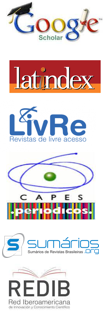Saberes Docentes para Freire, Shulman e Tardif: Percepções e Aproximações Teóricas
DOI:
https://doi.org/10.17921/2447-8733.2022v23n2p%25pResumo
Resumo
Este ensaio tem como objetivo apresentar as percepções e as aproximações teóricas das contribuições de Freire, Shulman e Tardif acerca dos saberes profissionais docentes. Trata-se de pesquisa de cunho teórico com base nas obras dos autores citados e seus interlocutores. A análise das percepções e suas aproximações teóricas acerca da temática foram produzidas a partir do movimento de pesquisa, que observou como cada autor define os saberes docentes em uma perspectiva conceitual e tipológica, a fim de apresentar reflexões de natureza teórica e prática para a formação inicial de professores. De Freire se destacam as exigências para ensinar e a complexidade da compreensão de que todo ato educativo, resultando da relação entre seres humanos é um ato eminentemente político. De Shulman se destaca o conhecimento pedagógico do conteúdo, considerando que é o professor que transforma o conteúdo com seu conhecimento e viabiliza a aprendizagem. Tardif destaca que a profissionalização da docência passa, necessariamente, pelo reconhecimento dos saberes docentes e que estes saberes não são apenas aqueles habitualmente atribuídos à docência por força das ciências da educação, mas saberes próprios da realização da prática docente. Pode-se concluir que as categorias centrais dos autores se complementam para auxiliar na compreensão do processo de construção dos saberes profissionais docentes. Percebe-se que a partilha de experiências em coletivos de pensamentos se torna, também, referenciais para a ação docente.
Palavras-chave: Formação de Professores. Identidades Docentes. Profissionalidade Docente.
Abstract
This essay aims to present the perceptions and theoretical approaches of the contributions of Freire, Shulman and Tardif about professional teaching knowledge. It is a theoretical research based on the studies of the aforementioned authors and their interlocutors. The analysis of perceptions and their theoretical approaches to the theme were produced from the research movement that observed how each author defines teaching knowledge in a conceptual and typological perspective in order to present reflections of a theoretical and practical nature for the initial teachers’ training. Freire highlights the demands for teaching and the complexity of understanding that any educational act, resulting from the relationship among human beings is an eminently political act. For Shulman, the pedagogical content knowledge stands out considering that it is the teacher who transforms the content with his or her knowledge and enables learning. Tardif points out that the teaching professionalization necessarily involves the recognition of teaching knowledge and that this knowledge is not only the ones that usually attributed to teaching by virtue of educational sciences, but knowledge proper to carrying out teaching practice. It can be concluded that the authors’ central categories complement each other to assist in the understanding of the process of construction of professional teaching knowledge. It is noticed that the sharing of experiences in collectives of thoughts also becomes references for teaching action.
Keywords: Teacher’s Formation. Teaching Identities. Teaching Professionalism.
Downloads
Publicado
Como Citar
Edição
Seção
Licença
Copyright (c) 2022 Revista de Ensino, Educação e Ciências Humanas

Este trabalho está licenciado sob uma licença Creative Commons Attribution-NonCommercial-NoDerivatives 4.0 International License.


